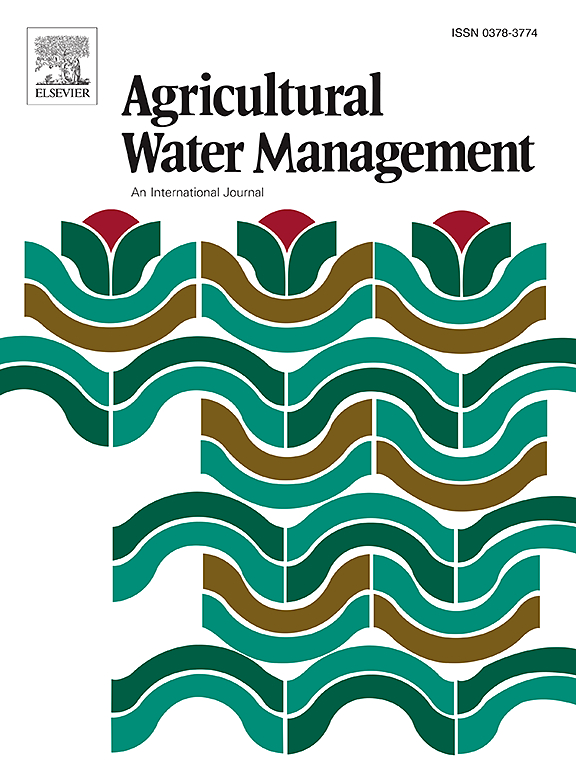Mild water deficit at seed filling stage promotes drought-tolerant soybean production formation and flavonoids accumulation
IF 6.5
1区 农林科学
Q1 AGRONOMY
引用次数: 0
Abstract
Soybean is an important crop for both grain and oil use. Appropriate agricultural managements increase crop productivity quantity and chemical nutrition quality. This study utilized two soybean varieties HN44(drought-tolerant) and SN14 (drought-sensitive)to analyze mechanism effect of light drought stress on instantaneous water use efficiency(WUEi), yield and isoflavone content by changes in the transcriptome and metabolome during the early seed-filling stage. The results showed that light drought stress can improve WUEi, stimulate the yield potential and increase the content of Daidzin and 6''-O-malonyldaidzin of HN44. In addition, under light drought stress, the differentially expressed genes (DEGs) and differentially accumulated metabolites (DAMs) in HN44 and SN14 were significantly enriched in the biosynthetic pathways of flavonoids and isoflavones. The flavonoid metabolites in HN44 increased, while those in SN14 decreased. Through the different expression patterns of DEGs and DAMs in the two varieties, differential genes and differential metabolites were screened out, such as CHS, HCT, F3H, HIDH, IF7GT, VR, p-coumaroylquinic, and 6''-O-Malonylglycitin. These genes and metabolites can provide theoretical basis for the selection breeding of drought-tolerant soybean varieties and the evaluation of drought-resistant resources. The findings provided important agronomic strategies for improving the yield, bioactive substances, and water resource management of crop soybeans.
种子灌浆期的轻度缺水可促进耐旱大豆产量的形成和黄酮类化合物的积累
大豆是一种重要的粮油作物。适当的农业管理可提高作物的产量和化学营养质量。本研究利用HN44(耐旱)和SN14(干旱敏感)两个大豆品种,通过种子灌浆初期转录组和代谢组的变化,分析光照干旱胁迫对瞬时水分利用效率(WUEi)、产量和异黄酮含量的影响机制。结果表明,光照干旱胁迫能提高HN44的瞬时水分利用效率(WUEi),激发其产量潜力,并增加其大黄素和6''-O-巨黄素的含量。此外,在光照干旱胁迫下,HN44和SN14的差异表达基因(DEGs)和差异积累代谢物(DAMs)在黄酮类化合物和异黄酮类化合物的生物合成途径中显著富集。HN44中的类黄酮代谢物有所增加,而SN14中的类黄酮代谢物则有所减少。通过两个品种中 DEGs 和 DAMs 的不同表达模式,筛选出了差异基因和差异代谢物,如 CHS、HCT、F3H、HIDH、IF7GT、VR、对香豆酰醌和 6''-O-Malonylglycitin 等。这些基因和代谢物可为抗旱大豆品种选育和抗旱资源评价提供理论依据。这些发现为提高作物大豆的产量、生物活性物质和水资源管理提供了重要的农艺学策略。
本文章由计算机程序翻译,如有差异,请以英文原文为准。
求助全文
约1分钟内获得全文
求助全文
来源期刊

Agricultural Water Management
农林科学-农艺学
CiteScore
12.10
自引率
14.90%
发文量
648
审稿时长
4.9 months
期刊介绍:
Agricultural Water Management publishes papers of international significance relating to the science, economics, and policy of agricultural water management. In all cases, manuscripts must address implications and provide insight regarding agricultural water management.
 求助内容:
求助内容: 应助结果提醒方式:
应助结果提醒方式:


